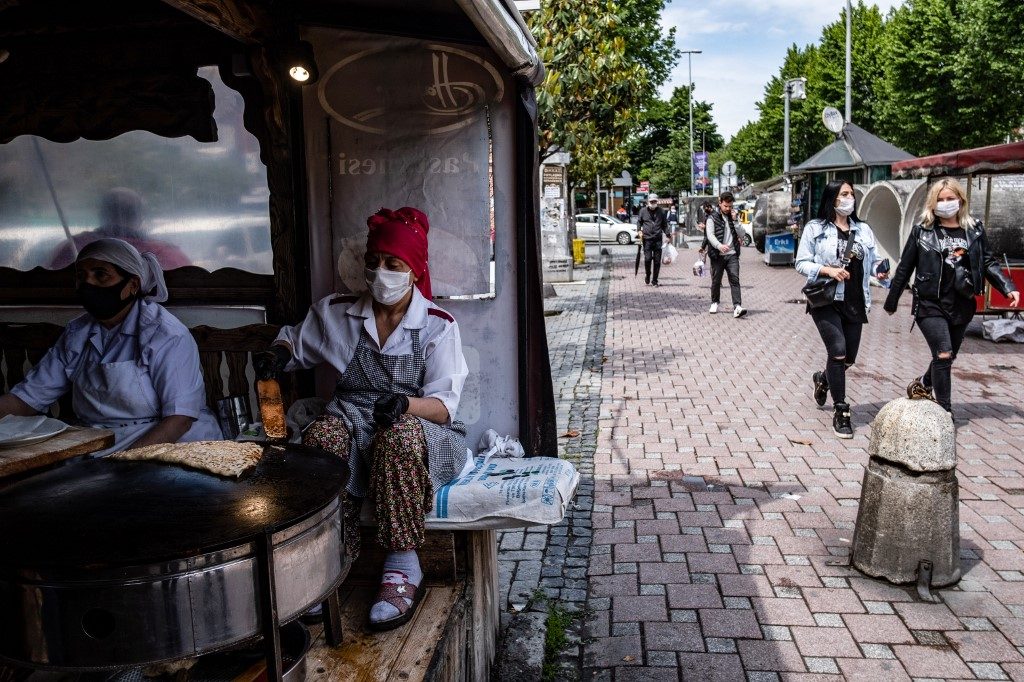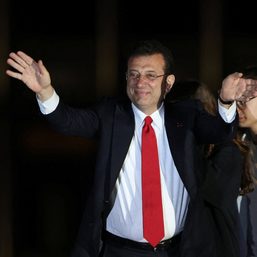SUMMARY
This is AI generated summarization, which may have errors. For context, always refer to the full article.

Turkey’s economy shrank by 9.9% between April and June compared to the same period last year, the first reading since the onset of the coronavirus pandemic showed on Monday, August 31.
The drop was smaller than the 10.7% contraction forecast in a survey by Bloomberg and less severe than those experienced in other big emerging markets.
It was also largely in line with the economic slowdowns experienced across Europe once weeks-long national lockdowns were imposed in March.
The Turkish economy grew by 4.5% in the first 3 months of the year as the country fought its way back from a deep economic crisis in 2018.
The pandemic forced the Turkish central bank to sharply cut interest rates and inject cash into the economy to help businesses and households survive.
But those measures are now taking a toll.
The Turkish lira has lost roughly fifth of its value against the dollar this year and annual inflation is hovering around 12%.
The central bank has responded by tightening access to credit without raising the main interest rate – a political sore point for Turkish President Recep Tayyip Erdogan.
The measures are aimed at slowing down inflation and improving the appeal of Turkish bonds and other financial instruments.
But foreign investors are still pulling out of the Turkish market and the central bank is burning through its hard currency reserves to support the lira.
Investors are worried that Turkey may be forced to impose currency controls and raise tariffs on imports to raise dollars and euros.
Erdogan rejects economic consensus and believes higher interest rates cause inflation. – Rappler.com
Add a comment
How does this make you feel?


![[Time Trowel] Evolution and the sneakiness of COVID](https://www.rappler.com/tachyon/2024/02/tl-evolution-covid.jpg?resize=257%2C257&crop=455px%2C0px%2C1080px%2C1080px)







There are no comments yet. Add your comment to start the conversation.